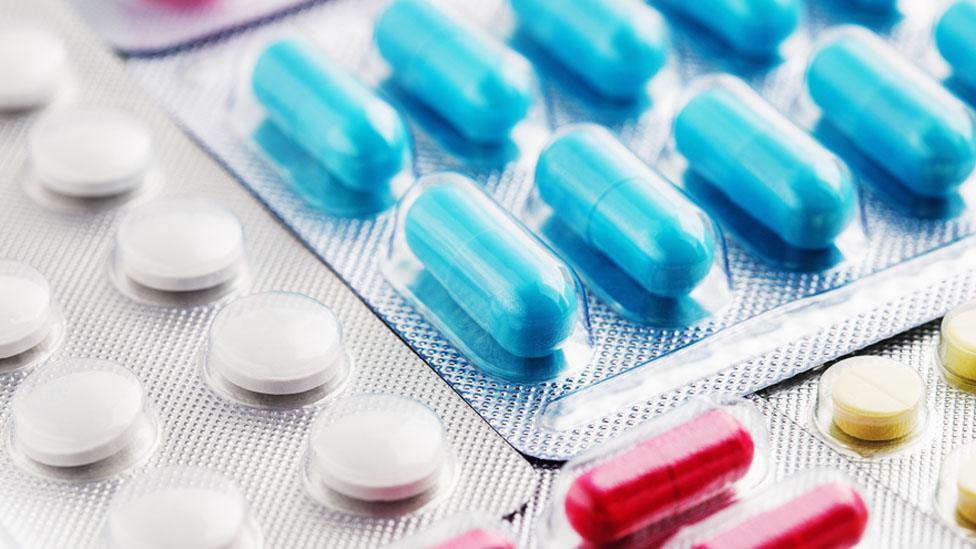'The headset helps my depression so I can be a dad again'
- Published
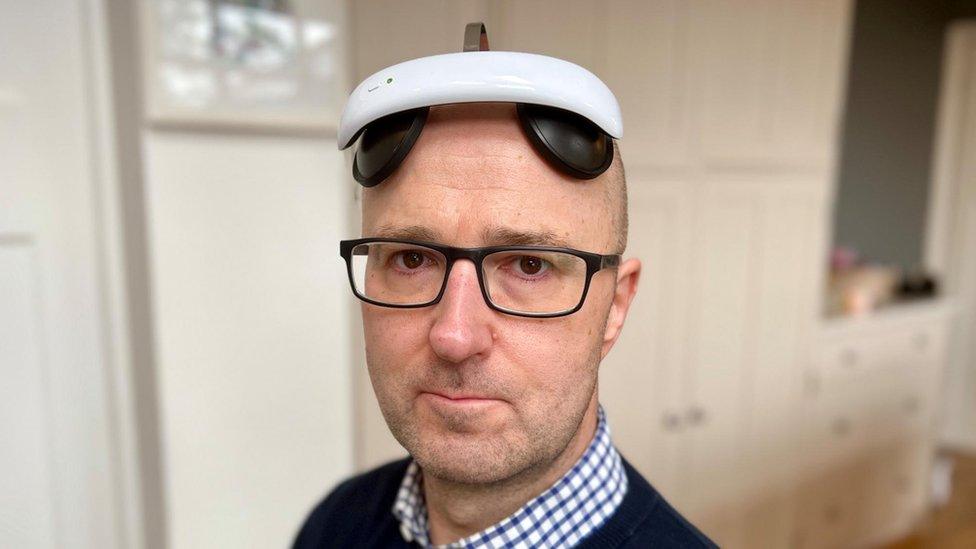
Ashley Riley says he is calmer and feels "at peace" after using the device for a number of months
A father-of-two said a headset that stimulated his brain using electronic pulses had been a "key part" of his recovery from depression.
Ashley Riley, from Northamptonshire, took part in an NHS trial that used the device to treat the disorder.
He signed up after medication alone failed and said he was now "able to be a full-time dad again".
Prof Alex O'Neill-Kerr, a consultant psychiatrist, said it may not work for all, but he had seen positive results.
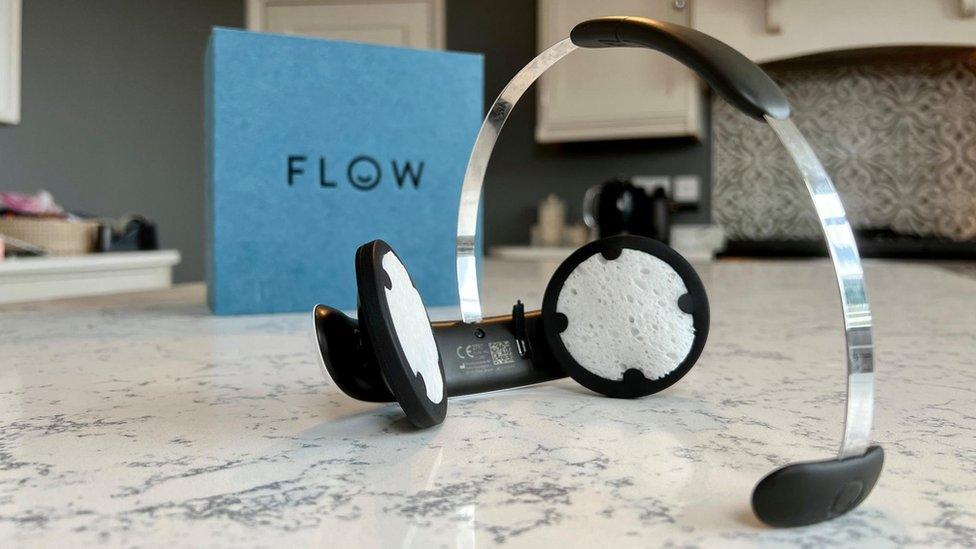
The headset has been given to certain patients on the NHS in Northamptonshire to take home and trial
The device works by stimulating brain activity in the dorsolateral prefrontal cortex in the front of the brain, an area linked with depression.
It delivers weak electrical currents, through electrodes placed on the forehead.
A camera in an app helps the user put on the headset in the correct way. It also controls the electrical current using Bluetooth.
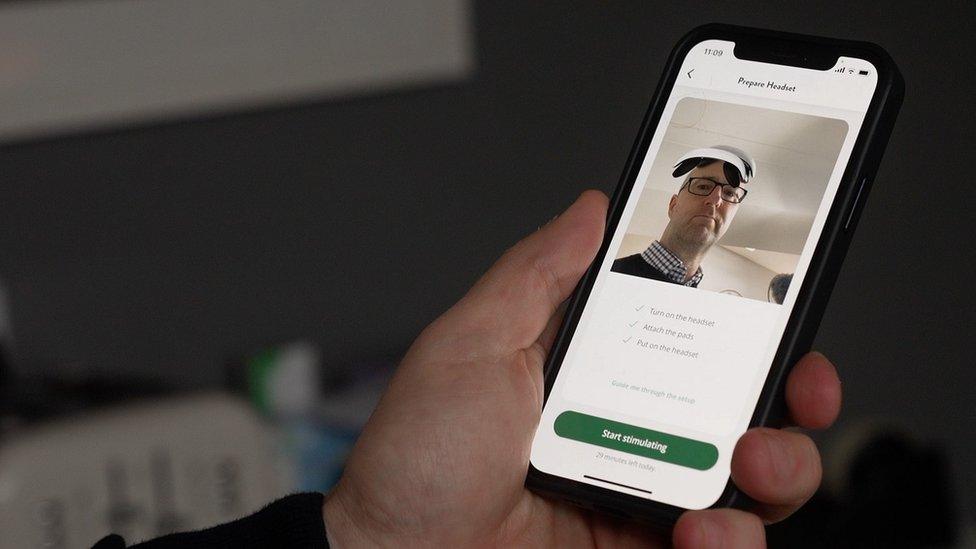
The app helps the user position the headset in the correct position so that the right part of the brain is targeted
According to the latest available data from the Office for National Statistics, one in six people, external has experienced moderate to severe depression.
Mr Riley, 52, runs a public relations firm and said: "I couldn't work, I couldn't interact with my family on a day-to-day basis.
"Some of the memories from before, like when your children ask your wife, 'why is daddy crying in the toilet?' are really tough.
"You wake up with depression and it follows you around all day. To feel you've got some hope in the day is really important."
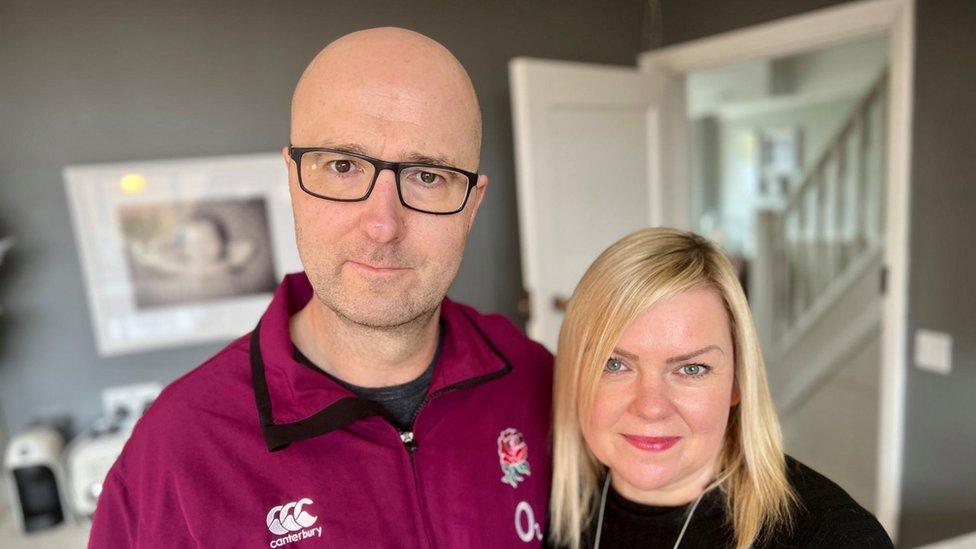
Ashley's wife Sharon says she has "got her husband back" thanks to the treatment he has been receiving
Mr Riley was given the device to use at home for 15 minutes a day, five times a week.
"I'm fully functioning now," he said. "I'm able to work again, I'm able to be a dad and be a husband in the way I need to be.
"I'm able to exercise and do my running, take part in parkrun UK with my boy and pretty much have a normal life.
"You put on this headset, and you get this little tingling when you use it... but it becomes part of your treatment and you do start to feel more positive.
"I'm able to reduce my medication, I'm able to reduce my therapy."
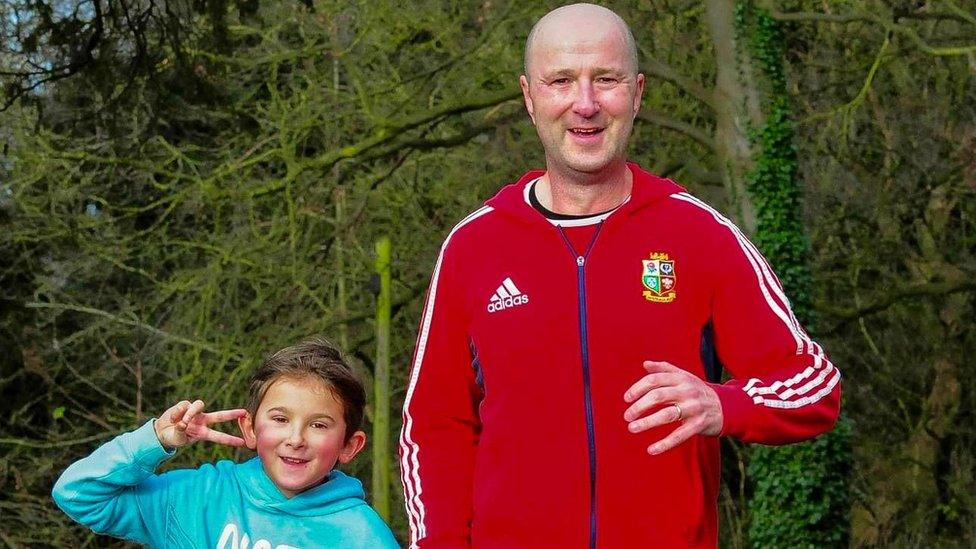
Ashley and his son attend a local parkrun every week thanks to his improved health
The trial, run by Northamptonshire Healthcare NHS Foundation Trust (NHFT), was the first to look at mental health patients using the device from the NHS in the community. , external
It found out of 14 people with moderate to severe depression, 10 experienced improvements.
Professor Alex O'Neill-Kerr from NHFT said he was initially sceptical because of the low-level current of the device, but said it was important to explore alternatives to medication.
"If you fail three or four antidepressants, the chances of you responding to treatment is pretty much zero and that represents one third of patients with depression.
"I've seen patients of mine that I've known for months if not years, get better with transcranial direct-current stimulation."
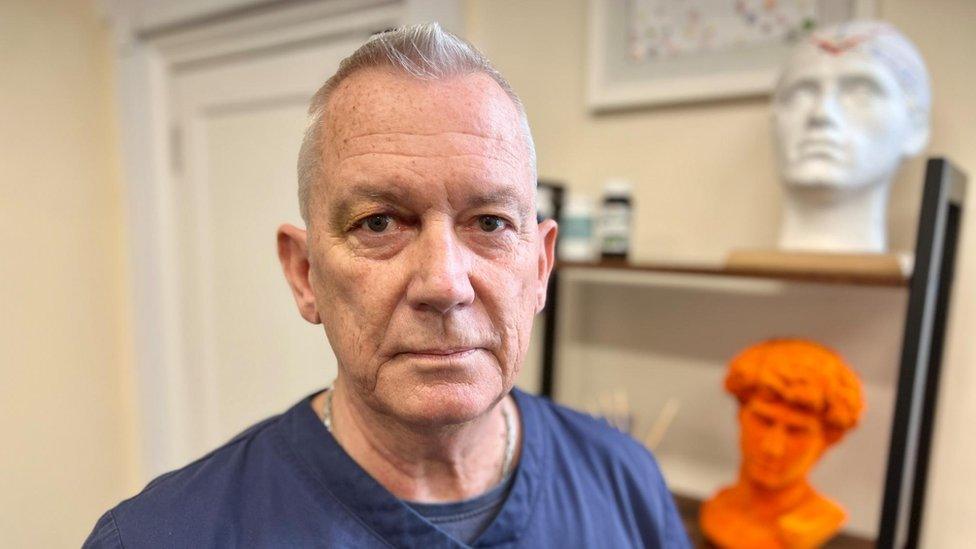
Consultant psychiatrist Professor Alex O'Neill-Kerr says the improvement he has seen is not a "placebo effect"
A wider double-blinded, placebo-controlled trial involving 173 patients in the US and UK, showed that 56% of people were relieved of all depressive symptoms within 10 weeks, external.
Erin Lee, the chief executive of Flow Neuroscience, which makes the device, responded to criticism that it had been questioned by the results of a third study., external
"Our brain runs on electricity and there is an immense amount of research about why this is an effective treatment.
"When you look at brains that are depressed there is less activity in the region that's associated with mood and memory, and what we're doing targeting that region with electrical impulses to push it back to a healthy state."
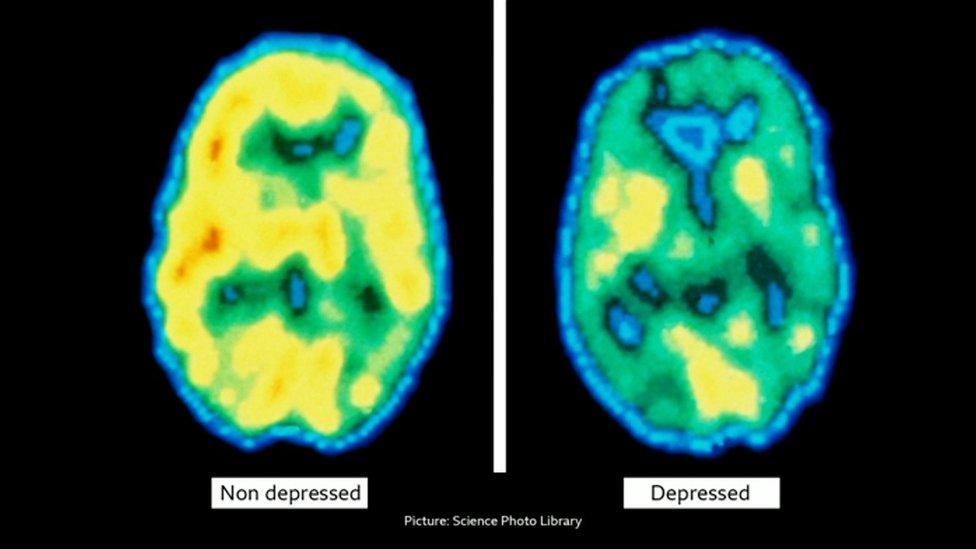
A brain scan showing how a depressed brain has less electrical stimulation than a brain without depression
The National Institute for Clinical Excellence said experts advised that the headset would particularly benefit people for whom antidepressants would not work., external
The NHS is extending trials of the device to cover postnatal depression and NHS medical staff who have depression.
If you are experiencing emotional stress, help and support is available via the BBC Action Line.

Follow East of England news on Facebook, external, Instagram, external and X, external. Got a story? Email eastofenglandnews@bbc.co.uk, external or WhatsApp 0800 169 1830
Related topics
- Published18 May 2023
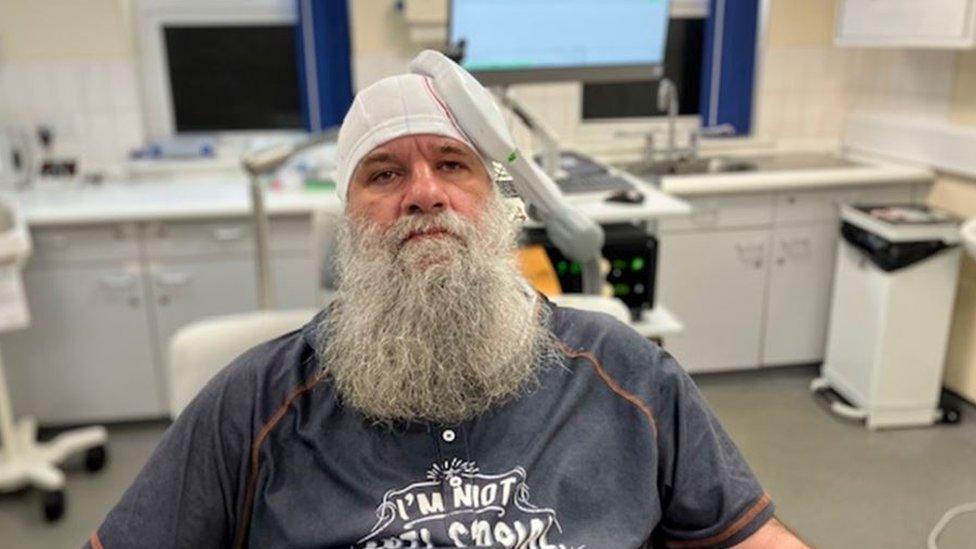
- Published22 August 2022
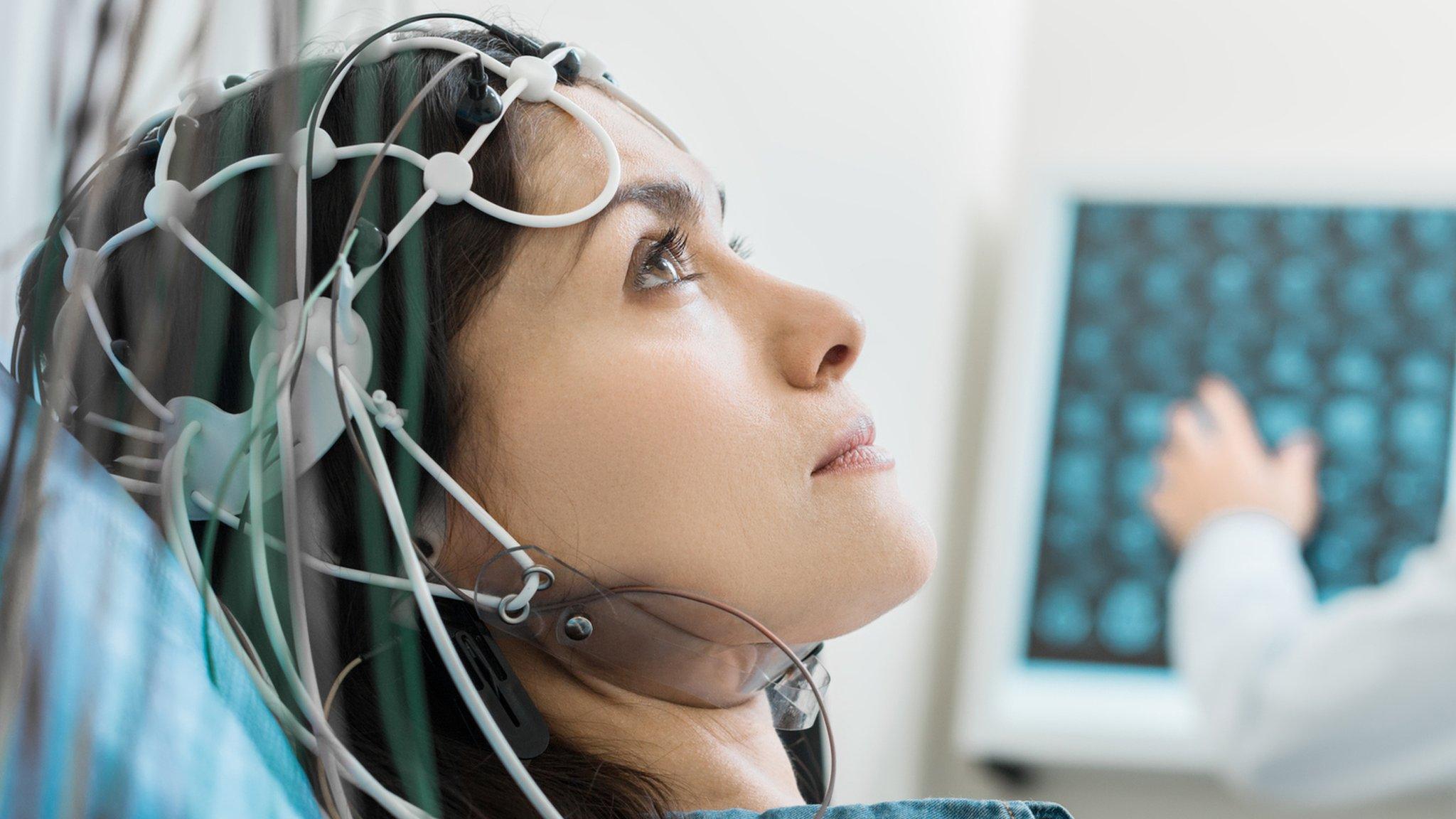
- Published11 January 2024
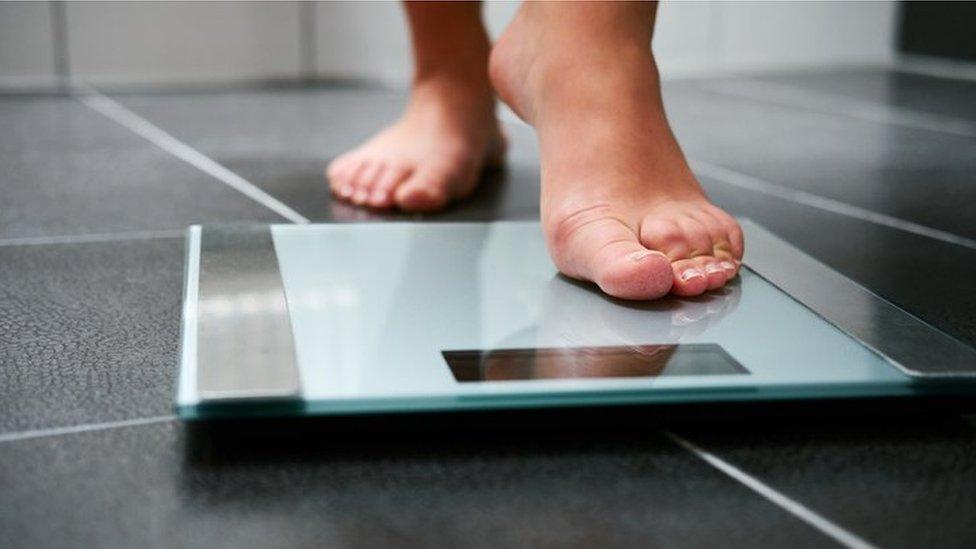
- Published19 June 2023
